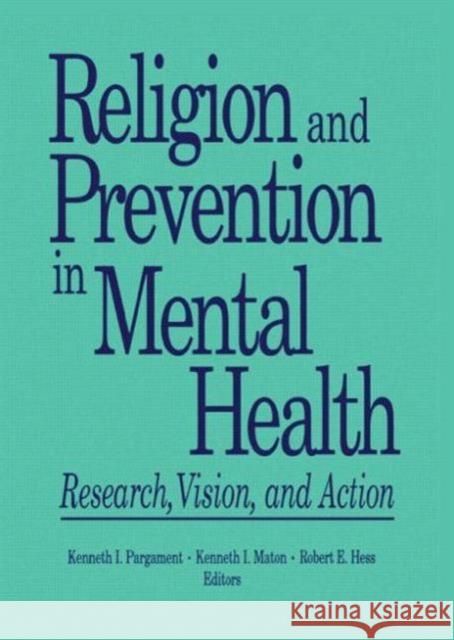Religion and Prevention in Mental Health : Research, Vision, and Action » książka
Religion and Prevention in Mental Health : Research, Vision, and Action
ISBN-13: 9781560242260 / Angielski / Miękka / 1992 / 346 str.
Religion and Prevention in Mental Health : Research, Vision, and Action
ISBN-13: 9781560242260 / Angielski / Miękka / 1992 / 346 str.
(netto: 195,86 VAT: 5%)
Najniższa cena z 30 dni: 201,44
ok. 16-18 dni roboczych.
Darmowa dostawa!
Here is the first book which highlights the unique resource of religion in the field of prevention. Until now, religious systems have been a largely undertapped resource of talent, energy, care, and physical and financial assets. Religion and Prevention in Mental Health is a significant new volume that lays a general foundation for preventive work in the religious area. It presents a number of reasons for examining religion as a source for aiding prevention and well-being. The authors dispute the popular notion of religion as damaging to mental health, as well as the idea that religious affiliation is entirely predictive of better mental health. Instead they focus on the framework for living that religions provide which assists believers in anticipating, avoiding, or modifying problems before they develop. For the human service professional willing to build a collaborative relationship with religious systems, this vital book depicts the richness and diversity of religion and shows the interface of religion, well-being, and prevention.Important issues such as the impact of religion on American society and the ethos of mental health and prevention, the historical and contemporary role of the African-American church as an empowering agent and mediating structure for black citizens, the critical roles of theology in determining the attitude of religious systems toward prevention and well-being, the importance of community and personal narratives, and the limitations of religious settings due to their survival concerns and methods to increase their potential to heal are all discussed thoroughly. Through a better understanding of religious settings, programs, and processes, human service professionals can more effectively utilize religion and reach a neglected portion of the population in need of help. In addition, religious leaders, mental health professionals including counselors, social workers, program developers, evaluators, and administrators, and psychologists, sociologists, and anthropologists will benefit from the comprehensive material provided in this timely book.











